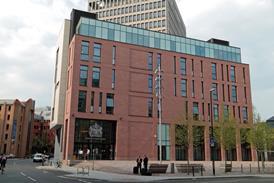A former solicitor taken off the roll almost 30 years ago following several rule breaches has failed with his bid to be allowed back into the profession.
Bryan Howard Lewis, admitted in 1978, argued that he posed no risk to the public if he returned to the roll. He presented the Solicitors Disciplinary Tribunal with seven character references supporting his application.
But the tribunal also heard that since losing his professional title Lewis had been employed with three different firms without securing the necessary permission to work there, and in some cases he had been presented to the public as a solicitor.
The tribunal accepted a substantial period had elapsed since Lewis’ removal from the roll but said he had disregarded the order imposed on him by continuing to work in the profession. ‘The failure of the applicant to ensure his compliance with that order at all times undermined his assertion of rehabilitation and was demonstrative of further regulatory non-compliance,’ said the tribunal.
‘Further, no documentary evidence of courses or training undertaken by the applicant had been filed at the tribunal or served on the [SRA].’
While on the roll Lewis had appeared three times before the tribunal in relation to various accounts rules breaches. In 1993, a year after voluntarily removing himself from the roll, he also pleaded guilty to one count of making a false statement on a passport application. An application for restoration to the roll was rejected in 1997.
In his latest attempt, Lewis was supported by Mohamed Ahmed, chief executive of London firm Ackroyd Legal LLP, who stated that Lewis had worked as a business consultant since 2015 and had been ‘fantastic and very competent’. It was heard that Lewis had been mistakenly listed as a ‘senior solicitor’ on the firm’s website due to an IT error.
Since 2003, Lewis had also been employed by three other solicitor firms and been directed of Croydon-based Plantation Legal Services Limited. He told the tribunal he had been ‘keeping up to date’ with legal developments and attended online education.
He accepted he should have ensured his employers had permission to take him on but said this liability fell on the firms. The tribunal said the failure to comply with his banning order showed he had ‘little insight into his previous failings, was unable to accept responsibility for the same, demonstrated no remorse and held no contrition’. Lewis was ordered to pay £3,000 costs.

















![David Lester (senior partner at Blythe Liggins), Darryl Barnes, Jagdeep Sandher (head of dispute resolution at Blythe Liggins)[4]](https://d1d8vslyhr7rdg.cloudfront.net/Pictures/274x183/4/2/8/116428_davidlesterseniorpartneratblytheligginsdarrylbarnesjagdeepsandherheadofdisputeresolutionatblytheliggins4_981603_crop.jpg)








